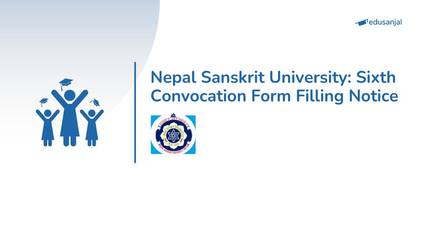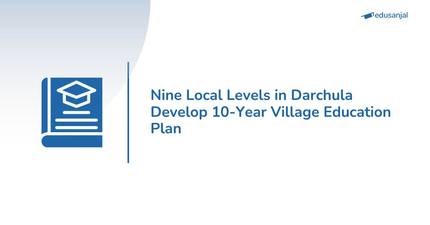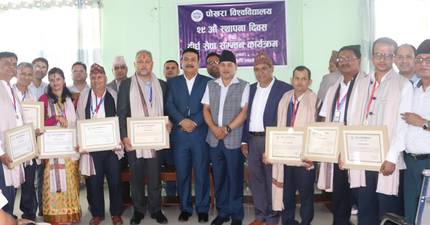As the new academic session commenced, Baglung Municipality swiftly initiated the merger of schools with low student numbers. This year, 35 schools have been merged and closed, 33 of which have been merged and 2 closed.
Rural areas have witnessed a significant decrease in student populations, prompting the municipality to take decisive action. Starting this academic year, three schools will be transformed into residential facilities to provide better facilities for students facing challenges in accessing education.
Baglung Municipality, which has the largest number of schools in the country, suspended Kaligandaki Primary School in Ward No. 12 and Laxminarayan Pathshala in Ward No. 13 last year. Ranibhume Primary School in Ward No. 9 and Saraswati Primary School in the same ward have been postponed this year.
Deputy Mayor Raju Khadka emphasized the municipality's commitment to ensuring equitable access to education, particularly for students facing geographical, social, and economic barriers. Efforts are underway to provide residential facilities for students who have to travel long distances to attend school, thereby enhancing their educational experience.
According to City Deputy Chief Khadka, Vishwakarma Secondary School located in Baglung-7, Mahavidyajan Secondary School of Ward No. 11, Rayadanda, and Prithvihinanya Secondary School of Ward No. 12 will be operated as residential schools. He said that since the number of students in the school is small, the teaching activities are not effective, and the expenses are high, so the level of the school has been adjusted and postponed. Deputy Chief Khadka says that the educational quality will also increase after level matching.
"There are about 100 schools in the municipality, and since the number of students in those schools is very low, this year we have matched the level of many schools. We already suspended four schools last year and this year." He said, "In the initial phase, three schools will be operated by providing residential facilities. Preparations are underway, and later, there is a plan to add residential facilities to other schools based on the need."
The City Education Officer, Dhana Prasad Pokharel, provided information after studying 48 schools within the municipality regarding the identification of needs and problems and the merger and relocation of schools. After the merger, eight schools will operate as Child Development Centers, 11 schools will operate as only Child Development Centers or Class 1, one school will operate only as Class 1, five schools will operate from Class 1 to 3, two schools will operate from Class 1 to 4, and in four schools, classes from 1 to 6 will be conducted. He also mentioned that after school mergers and relocations, teachers will be redistributed to schools within the same ward where necessary.
In terms of financial support, Pokharel outlined that schools experiencing an increase in student enrollment post-merger will receive funds amounting to two lakhs, while schools affected by the merger will receive 25 thousand per class. Additionally, the municipality plans to supplement the government's allocation of funds for students with an additional five rupees per day per child.
Looking ahead, Baglung Municipality envisions establishing one residential school per ward, with a focus on vocational and technical education opportunities. This holistic approach aims to address immediate challenges and foster long-term improvements in educational standards across the municipality.
Baglung Municipality currently oversees the operation of 82 community schools and 20 institutional schools, catering to approximately 16 thousand students. The municipality's concerted efforts underscore its commitment to ensuring equitable access to quality education and nurturing the academic potential of all students.













